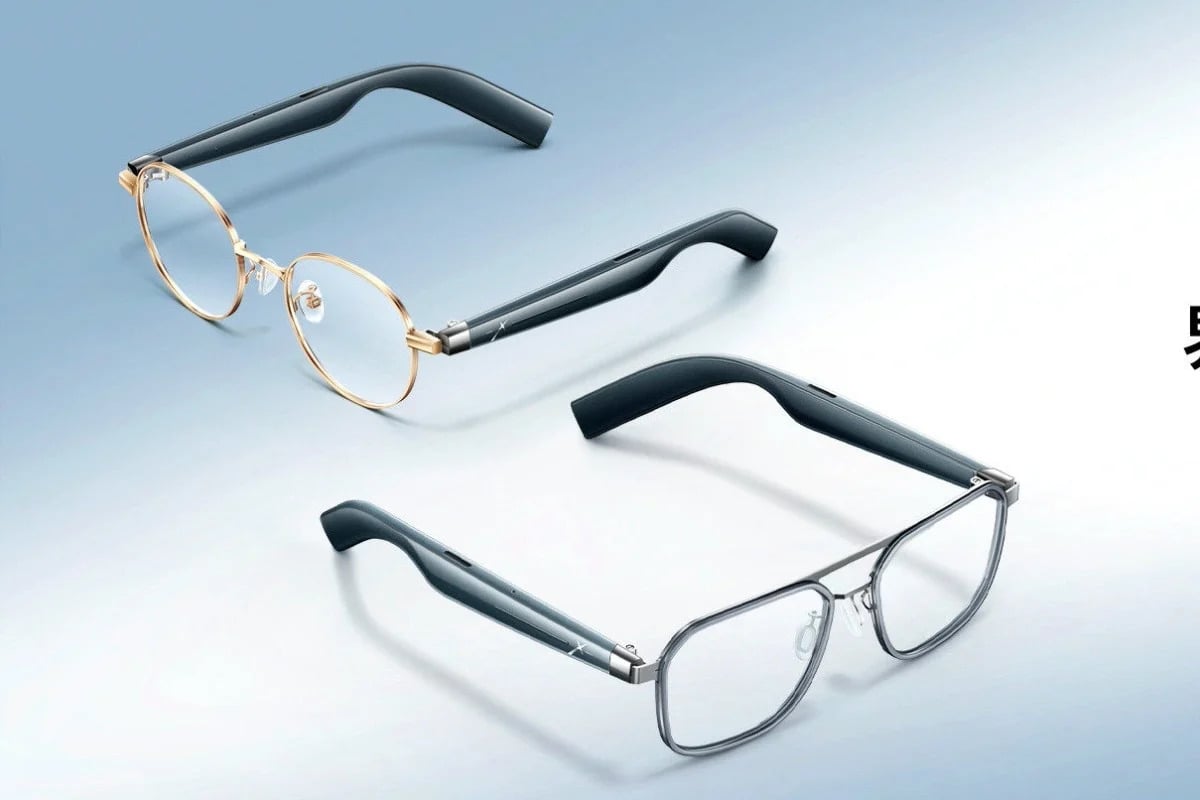The rapid development of generative AI over the past few years has given smart glasses a significant intelligence upgrade, allowing users to quickly access information about their surroundings, or translate conversations in real time.
Ray-Ban and Meta have been the biggest beneficiaries of this trend since integrating AI into their $300 camera-equipped smart glasses last year. “The new versions have sold more…” Francesco Milleri, CEO of the company that owns Ray-Ban, said in July.

Superhexa has launched the Jiehuan smart glasses in China for just 699 yuan ($98). Photo: Superhexa
One of the latest companies to join the trend is Xiaomi-backed startup Superhexa, which launched its Jiehuan AI audio glasses this month.
Compared to foreign products, Jiehuan glasses are competitively priced at 699 yuan ($98). Functionally, they are similar to competing products in that they provide quick access to LLM models through the use of built-in speakers and microphones.
Jiehuan glasses can play music for 11 hours continuously and have a standby time of up to half a month in a frame that weighs just 30 grams. Other features include voice navigation, AI chat, and audio translation.
Chinese competitors are now looking to develop their own products with similar functionality to Ray-Ban frames but at a much lower cost.
One customer said Superhexa offers a wide selection of stylish frames, has good sound quality but struggles with voice recognition in noisy environments.
From April to May, startups including Hangzhou-based Liweike and Shenzhen-based Sharge, along with tech giants like Huawei Technologies, successively launched their own AI glasses.
Current AI glasses look like regular eyeglasses or sunglasses equipped with speakers, cameras and AI, said Ivan Lam, senior analyst at market consultancy Counterpoint.
Users may be attracted to the novelty, but those who don’t need glasses may not want to wear them all the time, especially since the electronic components in smart glasses can feel heavy. Manufacturers will need to “further reduce weight, improve the wearing experience and battery life,” Lam said.
Some smartglasses companies have prioritized style over weight. Hong Kong-based Solos aims to compete directly with Ray-Ban and Meta this fall with its new AirGo smartglasses with cameras. They will weigh 30 grams and cost less than Ray-Ban frames.
Singapore-based Brilliant Labs launched its Frame smart glasses this year for $350. Co-founder and CEO Bobak Tavangar said the company hopes its open-source approach will help the glasses find adoption in a variety of environments, including businesses.
“The big opportunity we see is to open source Glass and enable developers who are working on AI to build all sorts of innovative [applications],” Tavangar said.
According to Tavangar, developers have built an app for Frame glasses that helps people with autism decode other people's emotions, as well as another app for doctors and nurses that uses AI to aid in diagnosis.
Ngoc Anh (according to SCMP)
Source: https://www.congluan.vn/kinh-thong-minh-ai-gay-sot-nganh-cong-nghe-trung-quoc-post308831.html


![[Photo] More than 17,000 candidates participate in the 2025 SPT Competency Assessment Test of Hanoi National University of Education](https://vphoto.vietnam.vn/thumb/1200x675/vietnam/resource/IMAGE/2025/5/17/e538d9a1636c407cbb211b314e6303fd)

![[Photo] Readers line up to visit the photo exhibition and receive a special publication commemorating the 135th birthday of President Ho Chi Minh at Nhan Dan Newspaper](https://vphoto.vietnam.vn/thumb/1200x675/vietnam/resource/IMAGE/2025/5/17/85b3197fc6bd43e6a9ee4db15101005b)
![[Photo] Prime Minister Pham Minh Chinh chairs meeting on science and technology development](https://vphoto.vietnam.vn/thumb/1200x675/vietnam/resource/IMAGE/2025/5/17/ae80dd74c384439789b12013c738a045)
































![[Photo] Nearly 3,000 students moved by stories about soldiers](https://vphoto.vietnam.vn/thumb/1200x675/vietnam/resource/IMAGE/2025/5/17/21da57c8241e42438b423eaa37215e0e)





































































Comment (0)